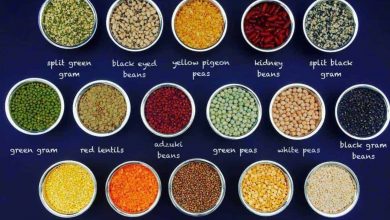
In a world inundated with diet trends and conflicting nutritional advice, finding a balanced and sustainable approach to healthy eating can be challenging. However, the foundation of a healthy life often begins with the food we consume. In this blog, we’ll explore the foods to embrace for optimal well-being and those to limit for a healthier, happier you.
Foods to Embrace
Colorful Fruits and Vegetables: Nature’s Bounty
Embrace the vibrant colors of fruits and vegetables, as they are packed with essential vitamins, minerals, and antioxidants. These nutrients not only support overall health but also contribute to glowing skin, improved digestion, and a strengthened immune system. Aim for a variety of colors to ensure a diverse range of nutrients.
Whole Grains: Fuel for the Body
Incorporating whole grains into your diet provides a steady source of energy and essential nutrients. Opt for whole grain options such as brown rice, quinoa, oats, and whole wheat bread over refined grains. The fiber in whole grains aids digestion and helps maintain a healthy weight by promoting a feeling of fullness.
Lean Proteins: Building Blocks for Health
Protein is a crucial component for building and repairing tissues in the body. Choose lean protein sources such as poultry, fish, beans, lentils, and tofu. These options are rich in protein without the excess saturated fats found in some red meats. Including a variety of protein sources ensures a well-rounded nutrient intake.
Healthy Fats: A Balanced Approach
Not all fats are created equal. Embrace sources of healthy fats, such as avocados, nuts, seeds, and olive oil. These fats support brain health, aid in nutrient absorption, and contribute to overall well-being. Be mindful of portion sizes, as even healthy fats are calorie-dense.
Dairy or Dairy Alternatives: Bone Health
Calcium is essential for strong bones and teeth. Embrace dairy products like milk, yogurt, and cheese or opt for fortified plant-based alternatives like almond or soy milk. These options provide the necessary calcium and vitamin D for bone health.
Hydrating Beverages: Sip Smartly
Water is a fundamental element for life, and staying adequately hydrated is vital for overall health. Embrace water as your primary beverage and limit sugary drinks. Herbal teas and infused water are excellent alternatives for those looking to add flavor without added sugars.
Foods to Limit
Processed Foods: Minimize the Intake
Processed foods often contain high levels of added sugars, salt, and unhealthy fats. These can contribute to weight gain, increased risk of chronic diseases, and overall poor nutritional intake. Opt for whole, unprocessed foods whenever possible.
Added Sugars: Sweet Moderation
Excessive sugar intake is linked to various health issues, including obesity, type 2 diabetes, and heart disease. Limit foods and beverages with added sugars, such as sugary snacks, sodas, and desserts. Check food labels for hidden sugars under different names like sucrose, high fructose corn syrup, or agave nectar.
Saturated and Trans Fats: Choose Wisely
While healthy fats are essential, saturated and trans fats can contribute to elevated cholesterol levels and heart disease. Limit the consumption of foods high in these fats, such as fried foods, fatty cuts of meat, and commercially baked goods. Instead, choose sources of unsaturated fats for heart-healthy options.
Salt: Watch Your Intake
High sodium intake is linked to elevated blood pressure and an increased risk of cardiovascular diseases. Limit your consumption of salty snacks, processed foods, and restaurant-prepared meals. Opt for herbs and spices to season your food instead of relying on excessive salt.
Alcohol: Moderation is Key
While moderate alcohol consumption may have some health benefits, excessive intake can lead to various health issues, including liver disease and increased risk of accidents. If you choose to consume alcohol, do so in moderation and be mindful of your limits.
Artificial Additives: Read Labels
Processed foods often contain artificial additives, preservatives, and colorings. While these substances are generally recognized as safe, it’s wise to minimize their intake when possible. Opt for whole, natural foods to ensure a cleaner and more nutrient-dense diet.
Conclusion
In conclusion, embracing a healthy lifestyle begins with the choices we make in the kitchen. By focusing on a balanced and diverse diet rich in whole, nutrient-dense foods, and being mindful of foods to limit, you can lay the groundwork for a vibrant and fulfilling life. Remember, it’s not about strict diets or deprivation but rather about nourishing your body with the fuel it needs to thrive. Make informed choices, savor your meals, and enjoy the journey to a healthier, happier you.



